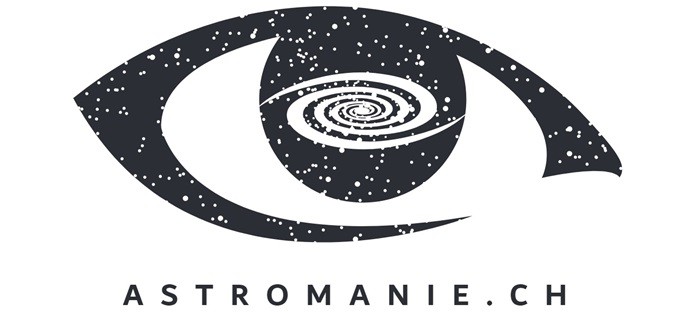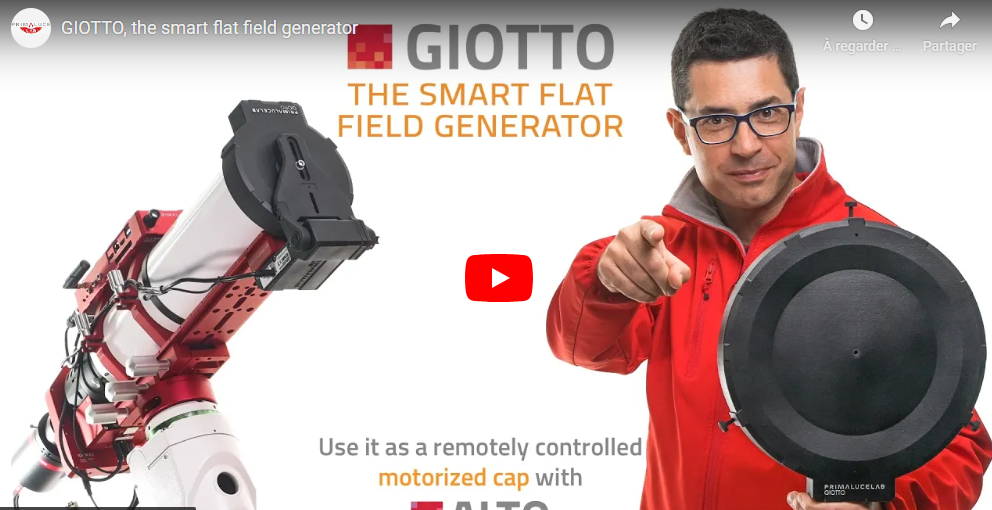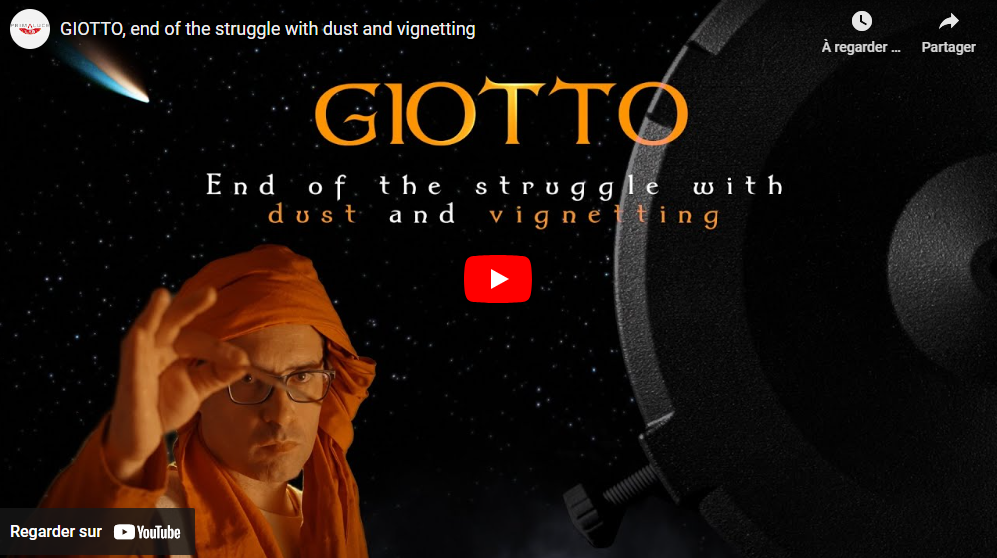No products
Prices are tax included
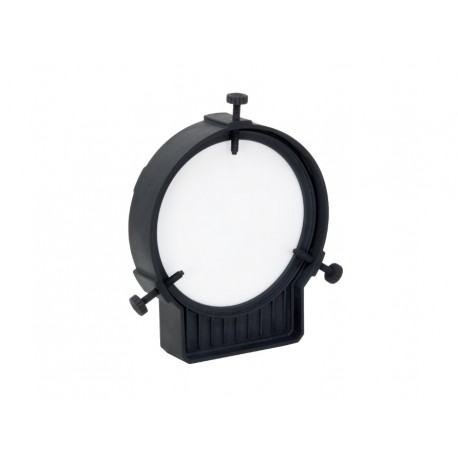 View larger
View larger
GIOTTO 185 Smart Flat Field Generator
Flat Field GIOTTO 185
New product
GIOTTO 185 Smart Flat Field Generator
Various adapters and accessories are available to allow the assembly of this item on your instrument, see PDF attached to this page.
Please contact us to find out availability and prices.
Subject to availability from the supplier. Please contact us for more information.
More info
GIOTTO 185 Smart Flat Field Generator
Calibration is important in astrophotography because results are greatly improved by capturing special calibration frames called flat, dark and bias and using them during processing. In particular, flat frames are recorded by pointing your telescope at a white surface and it allows to mitigate effect of vignetting and shadows created by dust on the optical system. GIOTTO is the smart flat field generator that helps you capturing flat calibration frames for your astrophotography.
GIOTTO 185 flat field generator has a maximum illuminated diameter of 185mm so we suggest it for compact telescopes like refractors up 150mm diameter. When you choose a flat field generator, we suggest you to choose a model with illuminated panel larger than telescope optics. Diameter of your telescope external tube should be lower than the flat field generator maximum illuminated diameter.
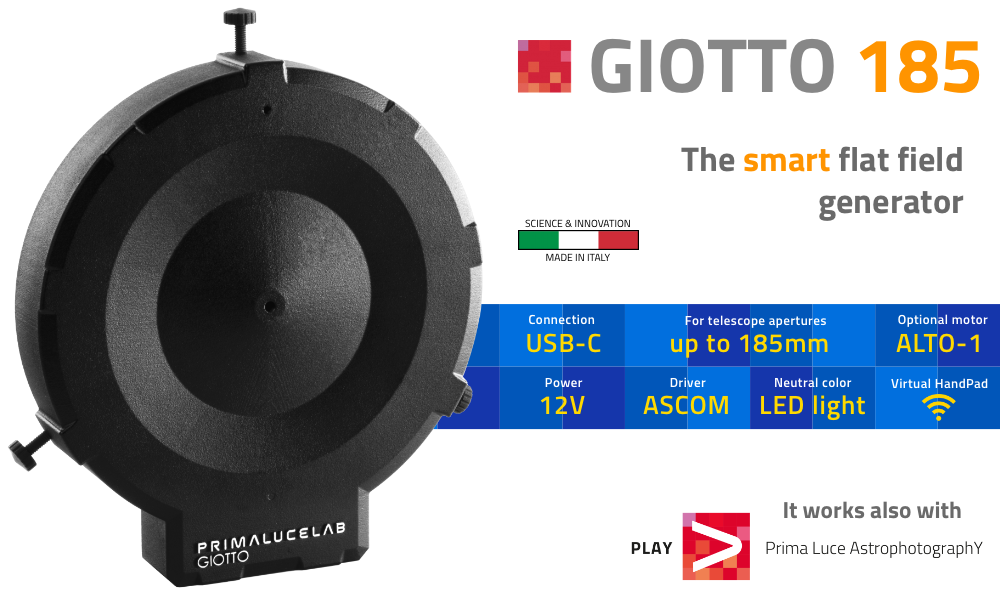
GIOTTO 185 Smart Flat Field Generator - main features:
- Designed for telescopes with aperture up to 185mm
- LED lights at color temperature similar to sunlight, to provide a neutral color tone
- Special designed light diffuser for an even illumination
- Adjustable light intensity by 100 steps (0 to 100%)
- It natively runs off of a 12V power source to avoid the need for external power units
- Included thumbscrews for an easy lock in front of telescopes with external tube diameter from 147mm to 210mm
- USB-C port to let you easily connect it to your EAGLE or Windows computer
- WiFi connectivity so you can wirelessly control it using your smartphone or tablet via the included Virtual HandPad
- Control and capture flat frames with PLAY astrophotography software for EAGLE or Windows
- ASCOM driver to let you control it through third party softwares
- Optional ALTO telescope cover motor to convert GIOTTO in a remotely controlled motorized cap
- Weight: 0.5 kg (1.1 lb)
GIOTTO includes electronics for USB or wireless remote control
In the bottom part of GIOTTO you find the control panel with USB-C port to let you easily connect it to your EAGLE or standard Windows computer. It also comes with WiFi connectivity so you can wirelessly control it using your smartphone or tablet via the included Virtual HandPad! In order to power GIOTTO, you don't need a separate power unit, since it natively runs off of a 12V power source so it's easy to power together with your astrophotography telescope.
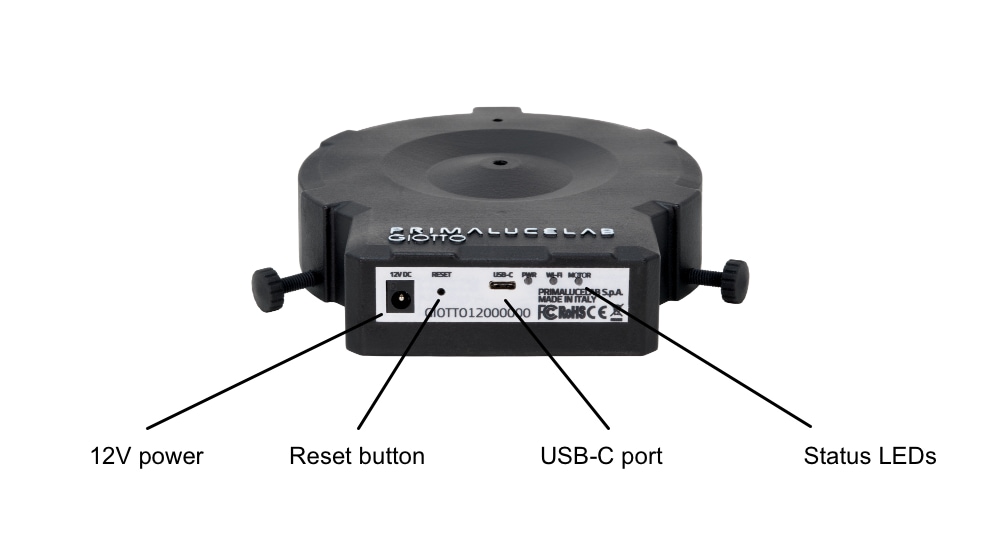
GIOTTO 185 is designed for telescopes with aperture up to 185mm
Using GIOTTO 185 is very simple: when you want to record your flat frames, you can simply attach GIOTTO 185 to the front of your telescope by locking it in place with the included thumbscrews that allow you to use it with telescope with external diameter from 147mm to 210mm. This way you are not forced to keep the flat field generator with your hand in front of your telescope during flat frames acquisition or to move your telescope from your target and point it to the Zenith if you can't keep the flat generator in position by hand. Thumbscrews are made up of plastic so they do not ruin your telescope tube when you lock GIOTTO on it.
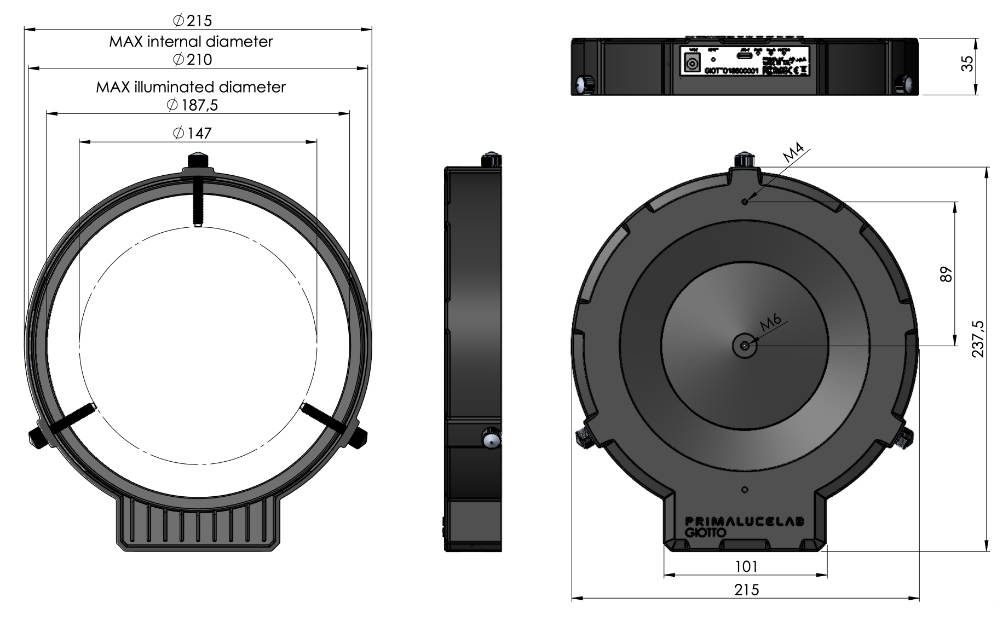
GIOTTO is easy to use and it helps you in recording flat frames
You can control GIOTTO with PLAY astrophotography software that we designed not only to control PrimaLuceLab devices but also to let you do astrophotography in the easiest way. In fact PLAY comes also with a special wizard that allows you to easily record calibration files for your images. And if you want to use your preferred Windows astrophotography software, you can also control GIOTTO by using other softwares thanks to the dedicated ASCOM driver.
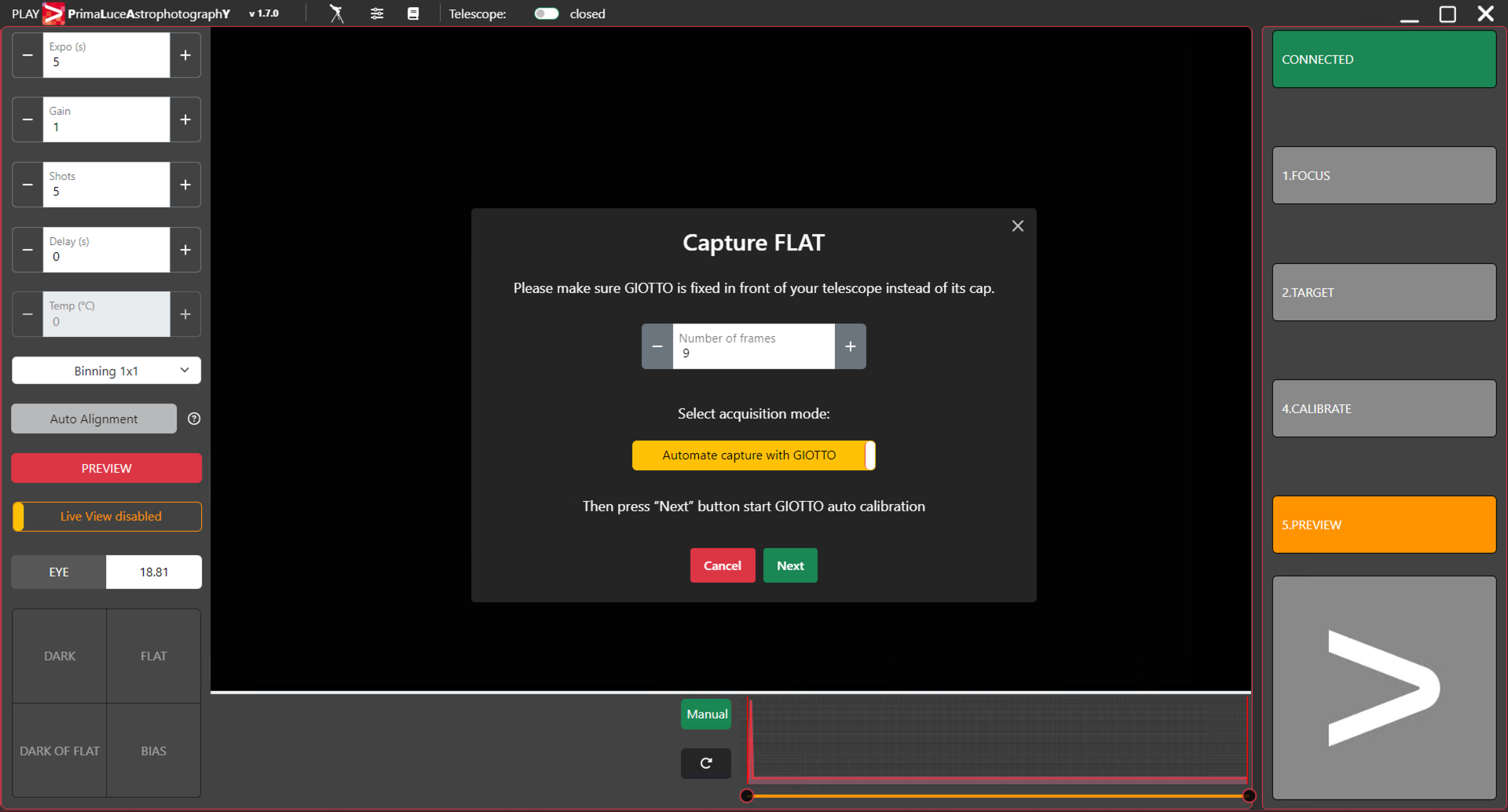
Use the Virtual HandPad to control GIOTTO even without a computer
You can even control GIOTTO without a computer by connecting your smartphone or tablet to GIOTTO WiFi network and by using the included Virtual HandPad. Here you can turn the light on and set brightness. You can also save your preferred settings and recall them very easily, for example by saving different values when you use different filters!
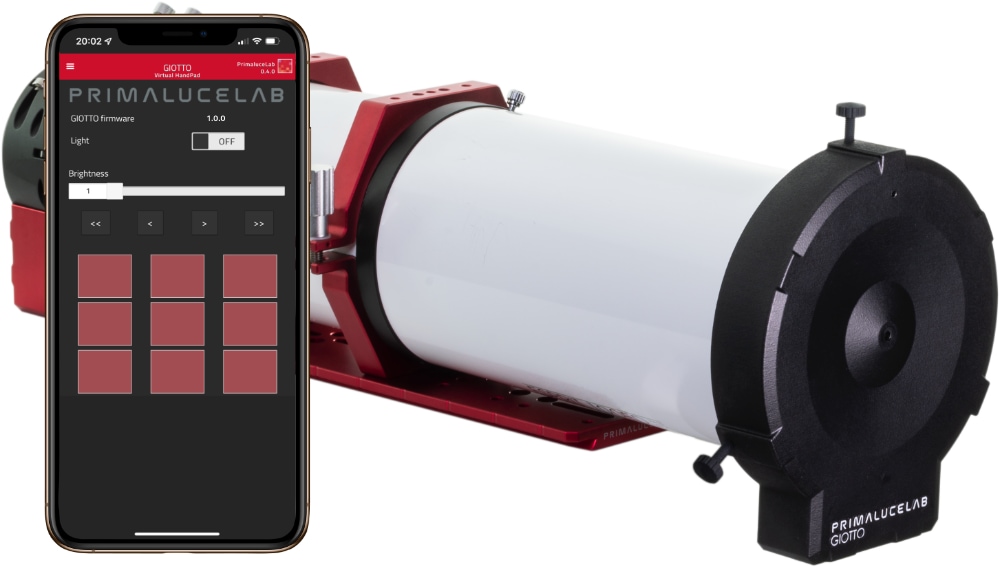
Convert it in a remotely controlled motorized cap by adding ALTO telescope cover motor
If you want to automate the capture of your calibration files or if you're searching for the best way to remotely open and close your telescope, you can add the optional ALTO telescope cover motor and use GIOTTO as a remotely controlled motorized cap! We designed ALTO to be easily connected with our PLUS clamp to any Vixen or Losmandy style dovetail bar that is already present in many telescopes (like SCT, Aplanatic SCT, RCT, etc). If your telescope has a short bar (for example in refractors or newtonians) you can easily add a longer dovetail bar to let you clamp ALTO just above or below the front end of your tube! This design allows you to adjust GIOTTO and ALTO positions to allow an optimal opening and closing of your telescope.
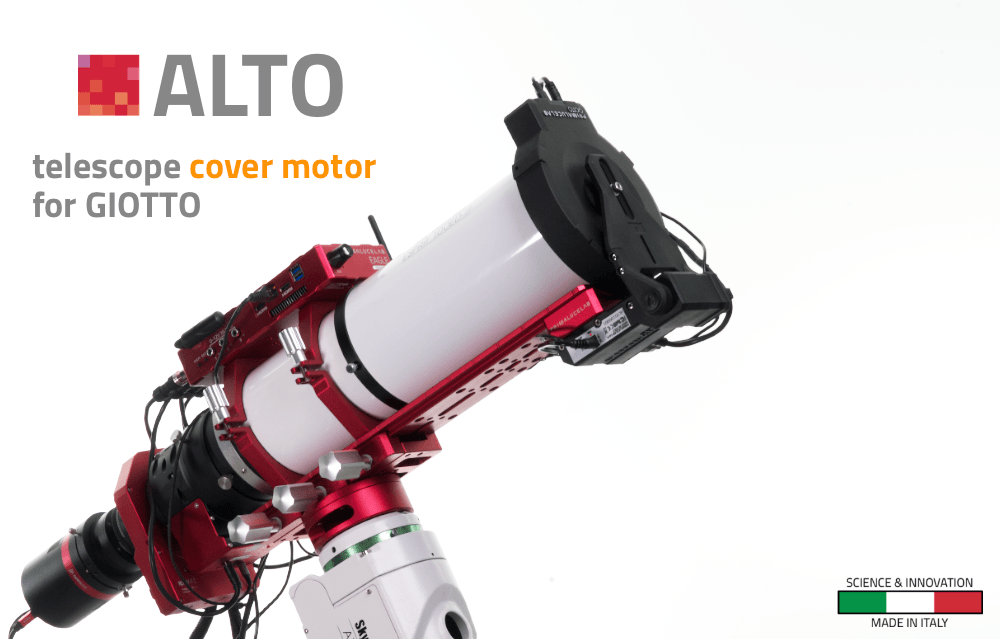
If you are thinking that image calibration and removal of dust and vignetting is a problem only for us modern astrophotographers, it seems like even Giotto, after completing his painting of Halley’s Comet in 1301, had the same problem!
